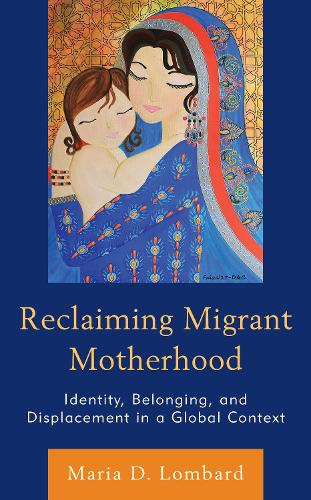
Reclaiming Migrant Motherhood: Identity, Belonging, and Displacement in a Global Context
(Hardback)
Publishing Details
Reclaiming Migrant Motherhood: Identity, Belonging, and Displacement in a Global Context
By (Author) Maria D. Lombard
Contributions by Alison Graham Bertolini
Contributions by Lamees Al Ethari
Contributions by Janet J. Graham
Contributions by Lucy Hunt
Contributions by Adrianne Kalfopoulou
Contributions by Maria D. Lombard
Contributions by Stella Mililli
Contributions by Sabreena Niles
Contributions by Leila Pazargadi
Bloomsbury Publishing PLC
Lexington Books/Fortress Academic
18th February 2022
United States
Classifications
Professional and Scholarly
Non Fiction
Feminism and feminist theory
305.48414
Physical Properties
Hardback
204
Width 161mm, Height 228mm, Spine 23mm
481g
Description
The global landscape is dotted with border crossings that can be particularly perilous for displaced women with children in tow. These mothers are often described by their various legal statuses like refugee, migrant, immigrant, forced, or voluntary, but their lived experiences are more complex than a single label. Reclaiming Migrant Motherhood looks at literature, film, and original ethnographic research about the lived experiences of displaced mothers. This volume considers the context of the global refugee crisis, forced migration, and resettlement as backdrops for the representations and identity development of displaced women who mother.
Situated within motherhood studies, this book is at the interdisciplinary intersection of literature, life writing, gender, (im)migration, refugee, and cultural studies. Contributors examine literary fiction, memoirs, and childrens literature by Ocean Vuong, Nadifa Mohamed, Laila Halaby, Susan Muaddi Darraj, Terry Farish, Thannha Lai, Bich Minh Nguyen, Julie Otsuka, V. V. Ganeshananthan, Shankari Chandran, and Mary Anne Mohanraj. The book also explores ethnographic research, creative writing, and film related to refugee studies. The border-crossings discussed in the volume are often physical, with stories from Afghanistan, Syria, Vietnam, Japan, Iraq, Canada, Greece, Somalia, Palestine, Sri Lanka, and America. The borders that displaced mothers face are examined through frameworks of postcolonialism, nationalism, feminism, and diaspora studies.
Reviews
This interdisciplinary collection offers timely insight into migrant mothers community practices, identity construction, and savvy intergenerational care work. Its ethnographic, narrative, and critical approaches reframe migrant mothers decisions as agentive processes that are as complex as they are a pleasure to read.
-- Rebecca Lorimer Leonard, University of Massachusetts AmherstAuthor Bio
Maria D. Lombard is assistant professor in residence at Northwestern University in Qatar.
